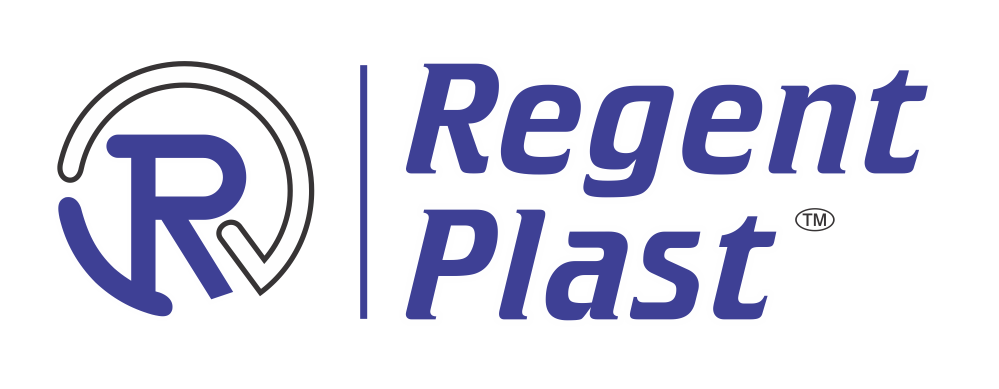Introduction
The shift toward circular economy models isn’t just a global trend—it’s a necessity. In India, the packaging sector is undergoing a transformation driven by environmental regulations, rising consumer awareness, and mounting pressure on brands to reduce their plastic footprint. At the center of this shift lies HDPE PCR (Post-Consumer Recycled High-Density Polyethylene), a recycled material that’s fast becoming the industry standard for sustainable packaging.
For businesses looking to reduce virgin plastic usage without compromising quality or performance, India’s HDPE PCR market is proving to be both promising and practical. And as one of India’s leading packaging manufacturers, Regent Plast is closely aligned with this change.
Let’s break down the availability, standards, and future of HDPE PCR in India—and what this means for your business.
1. What is HDPE PCR and Why It Matters
HDPE PCR is made by collecting and recycling used HDPE products—think automotive lubricant bottles, shampoo bottles, detergent bottles, chemical drums or pharmaceutical containers—into new resin granules that can be used again in packaging and other industrial applications. This reduces landfill waste, conserves energy, and cuts down on carbon emissions tied to virgin plastic production.
But here’s the key: not all PCR is created equal. For use in critical applications like rigid packaging or blow-molded containers, quality and consistency are everything.
2. Current Availability in India
India’s recycling infrastructure is maturing. Over the past few years, several suppliers have started offering HDPE PCR granules at industrial scale, particularly in key manufacturing hubs like New Delhi, Gujarat, and Maharashtra.
These granules are now being used in:
- Rigid packaging (personal care, household, pharma, automotive lubricants and chemicals)
- Blow molding (bottles, jerry cans, automotive lubricant containers)
- Pipes and construction-grade products
More manufacturers are also offering contract-based supply models, ensuring consistent availability for brands that rely on high volumes of PCR resin.
3. Quality Assurance: From Near-Virgin Grade to GRS Certified
One of the earlier concerns with recycled plastic was its inconsistency. But the landscape is changing fast.
After rigorous trials, Regent Plast has been selective in partnering with a handful of recycling companies that are producing next-to-virgin-grade HDPE PCR granules, which closely mimic the properties of fresh HDPE resin in terms of strength, melt flow, and flexibility.
Here’s how quality is being maintained:
- In-house Testing: Suppliers are using standardized lab methods to measure Melt Flow Index (MFI) and IZOD Impact Strength, two critical parameters in blow molding and packaging applications.
- Color Sorting & Decontamination: Advanced separation technologies are ensuring clean input materials, reducing contamination and off-colors.
- Certifications: Some Indian PCR suppliers now offer GRS (Global Recycled Standard) certified materials, validating the recycled content and supply chain traceability.
4. Regulatory Push: EPR and Mandatory Recycled Content
The Indian government is not sitting idle. Through its Extended Producer Responsibility (EPR) framework, producers, importers, and brand owners are now required to ensure a minimum percentage of recycled content in their packaging materials.
This regulation has catalyzed:
- Greater demand for certified PCR material
- Investment in automated recycling plants
- Development of closed-loop systems between recyclers and brands
What this really means is that access to reliable, compliant HDPE PCR is no longer optional—it’s quickly becoming a business requirement.
5. Capacity and Supply Considerations
Let’s be real—while India has made impressive progress, the supply of high-quality PCR is not infinite.
Some suppliers are running close to full capacity for specialty PCR grades, especially those meant for cosmetic, pharmaceutical, or food-grade packaging. These applications require tighter specs and higher-quality input streams, which naturally narrows availability.
As a result, many vendors now require contractual commitments or forecast-based orders to allocate supply. This is where building long-term partnerships with reliable packaging manufacturers, like Regent Plast, becomes a strategic advantage.
6. The Market Outlook: Momentum Is Building
India’s HDPE PCR market is positioned for strong growth.
Thanks to ongoing investment in recycling infrastructure, growing regulatory pressure, and increasing brand commitments to sustainability, the demand curve is only going up. In fact, large FMCG and chemical companies are actively revising their procurement policies to favor recycled-content packaging over virgin alternatives.
The takeaway? Companies that integrate PCR now, and do so through reliable supply chains, will not only future-proof their packaging but also gain a competitive edge.
Conclusion
HDPE PCR in India is no longer a fringe material—it’s a strategic resource. With consistent quality, increasing availability, and regulatory tailwinds, it’s the right time to make the switch.
But like any resource, access matters. Especially when you’re aiming for packaging that doesn’t just look good, but performs flawlessly.
Why Regent Plast is Your Best Bet for PCR-Based Packaging
At Regent Plast, we don’t just manufacture plastic packaging—we shape solutions that align with the future of sustainable design.
Here’s how we help:
- End-to-End Custom Packaging Solutions: From concept to mold to delivery.
- PCR-Ready Infrastructure: Our Multi-Layer blow moulding equipments can process PCR into HDPE bottles, jars, and containers without compromising on both quality and appearance. We have been awarded the FIFSA Award in Responsible Packaging.
- Compliance & Certifications: We meet international standards for material safety, recyclability, and regulatory compliance.
- Reliable Sourcing Partnerships: With access to India’s most trusted PCR suppliers, we ensure consistent material quality and availability.
If you’re serious about making your packaging more sustainable—without sacrificing quality or function—let’s talk.
Partner with Regent Plast. Let’s build a cleaner packaging future together

